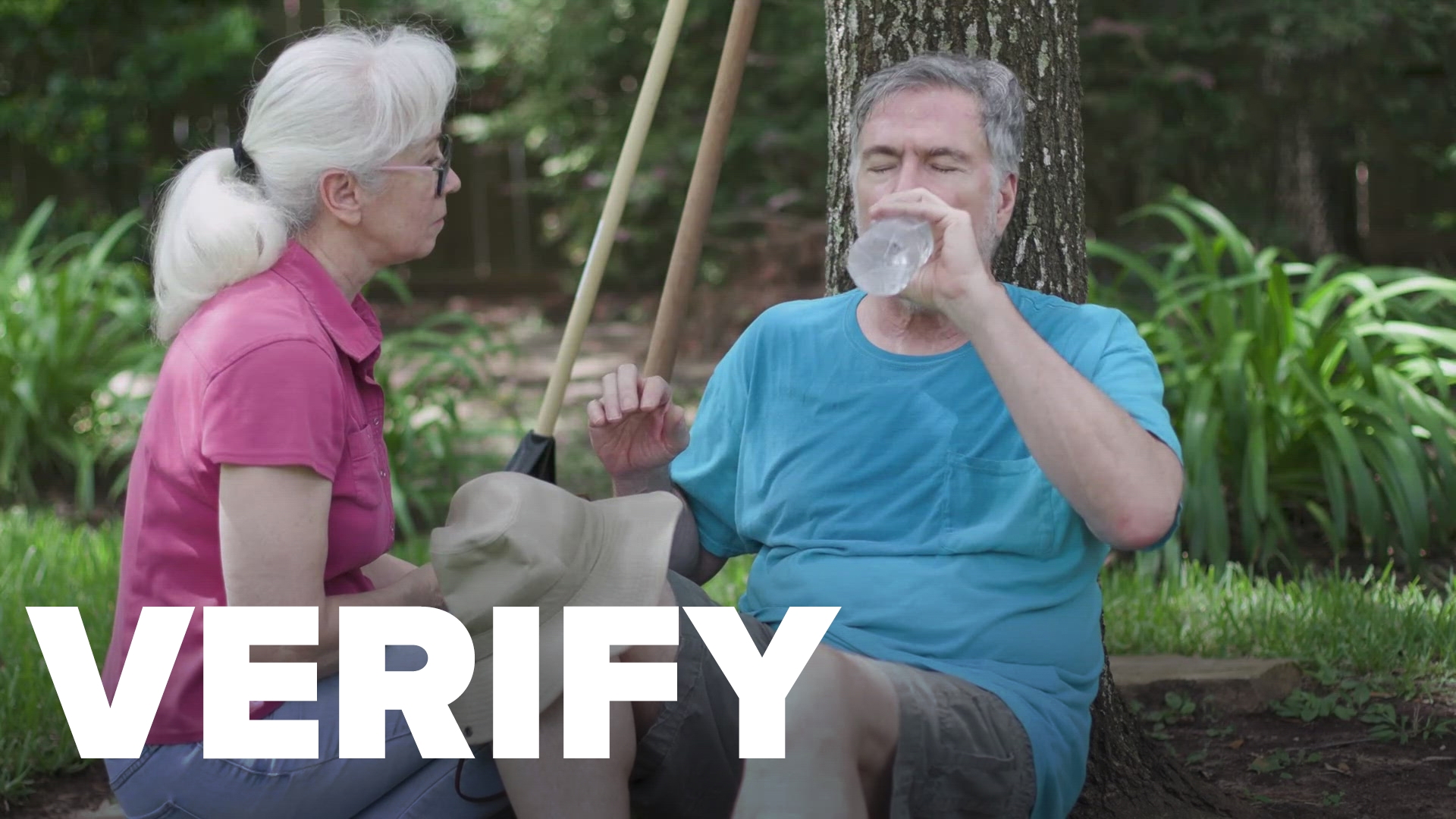LITTLE ROCK, Ark. — Weather is a common topic of conversation around the water cooler, in coffee shops, you name it. If the Natural State's recent heat has you feeling under the weather, there might be a medical reason for it.
The sweltering weather in Arkansas is nothing new to those familiar with summer in the south, but it's critical to pay close attention to the forecast's temperature and humidity level.
According to the CDC, serious heat-related illnesses, like heat exhaustion or heat stroke, can happen when the body is unable to properly cool itself through sweating.
During extreme heat, a person's body temperature can rise faster than it can cool itself down and cause damage to the brain or other vital organs.
The CDC noted that an estimated 1,220 people in the United States are killed by extreme heat every year.
Some signs of heat stroke include heat cramps, hot, red skin that may be dry or moist; changes in consciousness; vomiting, and high body temperature.
Another less serious reaction to high heat and humidity is called heat intolerance. People who experience this may feel hot even when others feel comfortable or cold.
The Cleveland Clinic said that heat intolerance can also be a sign of dysautonomia, a general term for disorders that disrupt your autonomic nervous system, which manages things like blood pressure, body temperature, breathing, digestion, dizziness, or heart rate.
Forms of dysautonomia are fairly common and affect more than 70 million people worldwide. Even so, the Cleveland Clinic added that most healthcare providers have limited experience with it because symptoms vary widely and can mimic other illnesses.
Some signs of heat exhaustion include cool, moist, pale, or flushed skin, heavy sweating, headache, nausea, dizziness, weakness, exhaustion, and heat cramps.
So, we can verify, that yes, high heat and humidity can actually make some people feel sick.
Since symptoms can come on rapidly, without warning, staying aware of how you handle the heat is vital to your safety.
To avoid falling victim to heat exhaustion or illness, follow these tips from the Red Cross:
- Stay hydrated by drinking plenty of fluids, especially if you're outside
- Wear loose-fitting, lightweight, or light-colored clothing
- Apply sunscreen if you're spending time in the sun
- Stay indoors or avoid strenuous activities during the hottest part of the day
- Take frequent breaks when working outside
- Bring outdoor pets inside if necessary
- Avoid leaving kids or pets in locked cars since they can heat up quickly
- Check on family, friends, and neighbors, especially those without air conditioning
- Know the signs of heat exhaustion and heat stroke

